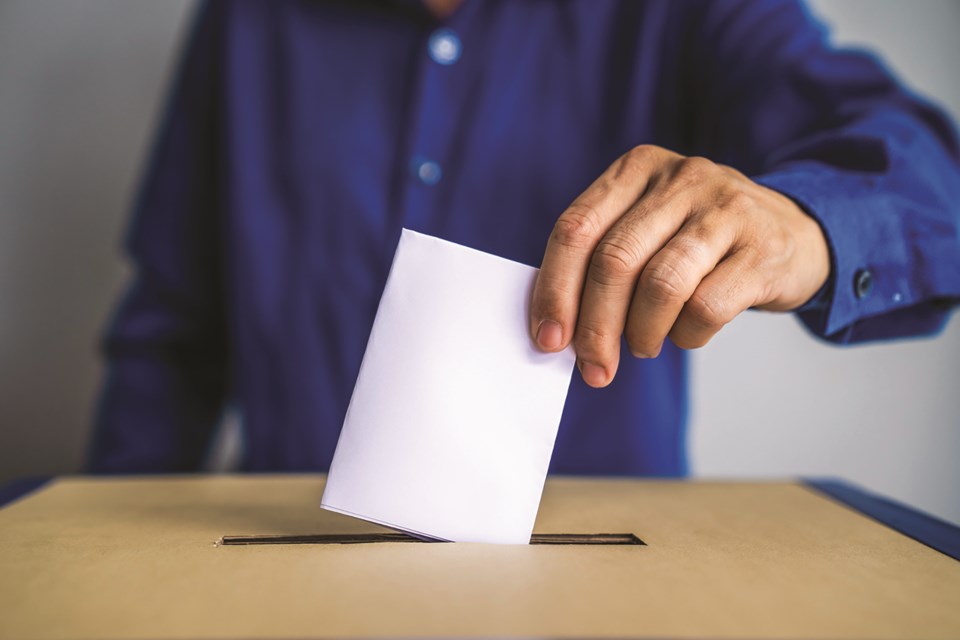Potential changes to identification requirements in Alberta’s Local Authority Election Act could hurt voter turnout and prevent disadvantaged groups from participating in elections, experts and advocates warn.
The act sets out election rules for Alberta municipalities and school boards. The Alberta government launched online surveys on Nov. 7 seeking feedback on several potential changes to municipal election and governance legislation, including the ability to vouch for voters who don’t have government-issued ID.
Currently, voters can have a person they know attest to their identity, address, and age at polling stations if they lack other accepted forms of ID. Losing vouching could mean the unhoused and those who otherwise have trouble finding a permanent address or voter ID would be blocked from casting their ballot, said Feodor Snagovsky, a political science professor at the University of Alberta
“The people who are going to be most affected by this are the people who election authorities should be doing the most to encourage to the polls because they're already much less likely to vote,” Snagovsky said.
“I think it's in all of our interests to make sure that as many people vote as possible. We depend on a plurality of voices to make sure that we have good public policy and excluding people from this fundamental right they have as Canadian citizens is not helping anyone.”
Krystal Zahara, chair of Athabasca Cares Community Housing Society, said ID replacement is one of the most common requests she hears from unhoused community members.
“It is almost a monthly occurrence with some of our clients, where they are having to go and get new IDs. And the reason being is because, obviously, they don't have a place to stay. And they don't have a safe place to keep those items,” Zahara said.
Removing vouching could make voting less accessible for vulnerable populations and create a demographic of people whose voices aren’t captured in local elections, she said.
“The reason we have elections is so we can choose who governs us and to tell them what we care about,” Snagovsky said. “If certain segments of the population are excluded from having that option, from being able to weigh in on policy and choose their leaders, it makes sense that leaders will be less responsive to those groups.”
Deborah Reid-Mickler, deputy mayor of the Village of Duchess, said at an Alberta Municipalities press conference on Nov. 16 that removing the ability of community members to vouch for one another during elections would have a huge impact, “especially in the smaller, rural and remote communities.”
“You don't use it very often. But it does provide that link, that ability for that resident who maybe rushed in or didn't realize that they hadn't got their wallet with them. It happens and we can easily and quickly get them voting in a legitimate and legal way,” she said.
“The surveys on the Local Authorities Election Act and the Municipal Government Act seek input on a range of issues related to local elections, including voter eligibility, as well as councillor accountability. No decisions will be made until we’ve heard from municipal administrations, local elected leaders, municipalities and Albertans,” Municipal Affairs Press Secretary Scott Johnston said in an emailed statement.
Johnston did not directly respond to questions about why the Alberta government was considering changing election rules on vouching.
Snagovsky said there has been a consistent “ideological push from parties on the centre-right that seem to think there’s a big problem with election integrity in Canada,” involving perceived loopholes that allow voter fraud to take place.
“But I haven't seen any evidence of that. I'm not aware of any evidence of systemic or widespread voter fraud in Canada, to say nothing of local Alberta elections. So, I really do think this is a solution in search of a problem.”




